Imaginary Interview #2
Jun 28, 2019 • 17 views
Imaginary Interview with the two most popular Detectives- Miss Marple and Hercule Poirot
Hello everyone. Your reporter is back with a new round of an exclusive interview and a secret that’s definitely going to leave you spellbound. Here’s the thing. I have recently found out about a secret machine that allows us to time travel, either backward in the past or forward in the future. Using this new technology to my full advantage, I went backward to the year 1898 in Goa to record this historic meeting and provide you with the same passion and thrill that I felt on meeting the world-famous detectives- Hercule Poirot and Miss Jane Marple. Even though I was astounded to see the two of them together, vacationing, the Tiger in me made me take this incredible opportunity to interview them.
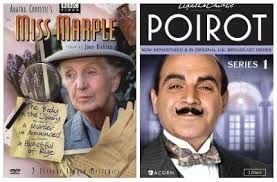
ME- Hello Monsieur Poirot and Miss Marple. It’s an honor to be able to take your interviews. Thank you so much for agreeing. (sits down on the leather sofa in the restaurant)
POIROT- Bonjour Mademoiselle (Hello miss). Pleasure is all mine, mon ami (my friend).
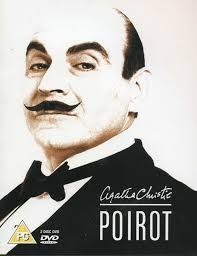
MARPLE-Good morning dear. It is really not much of a problem.
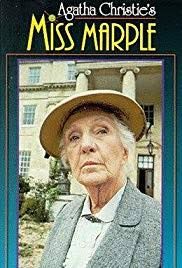
ME- Well, there is no doubt that you both are two of the most famous detectives. So, how about you give the readers a sneak peek into your personal life?
POIROT-I was born near the town of Spa, Belgium,which you all probably know if you have read ‘The Big Four’. I come from a large family and have a little sister. Before being a private detective, I was with the Brussels police force. I was the chief of police of Brussels until ‘The Great War’ (World War 1) forced me to leave Belgium and go to England as a refugee. After that I pursued the career of a private detective and I’ve been a good one at that too. And the rest, as they say, is history. (turns to Miss Marple) What about you, mademoiselle?
MARPLE- I was born in the village of St. Mary Med, located South of England. I grew up in a cathedral close, and I studied at an Italian finishing school. I made my first appearance in Murder at the Vicarage where Colonel Protheroe, the magistrate whom everyone in town hated, had been shot through the head at the local vicarage. Since I did not marry, my family consists of my nephew Raymond and two great-nephews, David and Lionel. If I do say so myself, I’m a bit sentimental and I also get attached to photographs and souvenirs connected with my family. (smiles fondly)
ME- What do you think a detective requires most in solving a crime?
POIROT- The little grey cells are all you need, mon ami (my friend). Work on that and see how you can easily solve a mystery. (brushes mustache with his hand) Also there should be order and method while solving a crime.
MARPLE- I think that if you have the incredible gift for sniffing out the malevolent side of human nature or can study human behavior, it definitely makes it easy to solve a crime. And of course, you require some of the ‘little grey cells’ as Monsieur Poirot says.
POIROT- Yes yes, you require that. And also a good understanding of human psychology. That helps too. It did help me. Your analysis should be clue-based and logical.
ME- So, what was the toughest or uni-
MARPLE- Ahem. Sorry to interrupt but can I do my knitting and answer your questions simultaneously?
ME- (smiles) Sure why not. So as I was asking. What was the toughest or unique case you both had to solve?
POIROT- I think for me, The Murder of Roger Ackroyd was the toughest case, I had to solve. It was both intriguing and filled with confusion as every person was under suspicion. It was a bit hard to pinpoint the murderer especially since I was being accompanied by someone all the time. But at last Hercule Poirot caught the culprit. After all he is the greatest detective the world has ever known. (laughs)
ME- Miss Marple?
MARPLE- Huh? Oh yeah. I think the most unique, not toughest, case I have ever solved was 4.50 from Paddington. Nobody was willing to believe my friend Elspeth but I knew she wouldn’t say something this drastic until and unless she actually saw it and believed in what she saw. It was a difficult time indeed, trying to prove something that was somewhat unbelievable and something which everyone thought to be a hallucination. But I did do it.
ME- How do you solve a crime? What do you do?
POIROT- It’s a bit funny, if I say so myself, but, I generally supply false or misleading information about myself or my background to obtain information. For example, in The Murder of Roger Ackroyd, I spoke of a non-existent mentally disabled nephew] to uncover information about homes for the mentally unfit while in The Big Four, I pretended to have (and also posed as) an identical twin brother named Achille. Even though I still believe in clues, I rather than painstakingly examining crime scenes, enquire into the nature of the victim or the psychology of the murderer. That and my little grey cells.
MARPLE- I can solve difficult crimes because of my shrewd intelligence, and St. Mary Mead, over my lifetime, has given me seemingly infinite examples of the negative side of human nature. Crimes always remind me of a parallel incident, although acquaintances get bored by the analogies that often lead me to a deeper realization about the true nature of a crime. Several times, I have been able to rely on my acquaintance with Sir Henry Clithering, a retired commissioner of the Metropolitan Police, for official information when required.
POIROT- Not to forget, mademoiselle, her special and remarkable ability to latch onto a casual comment and connect it to the case at hand. That is unique, mon ami.
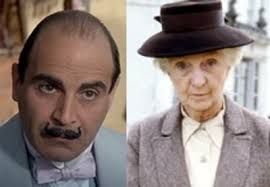
ME- So, Monsieur Poirot, you keep track of Miss Marple’s cases and how she solves them, then? (knowing smile)
POIROT- Non non, mademoiselle. (No no, miss) I mean, I do know about the cases she has solved and the methods she used but I do not keep track, as you say.
ME- What about you Miss Marple?
MARPLE- (looks up from her knitting) I don’t know. I am busy with my knitting, my life at St. Mary Mead and solving cases. So I do not know.
ME- Would you consider each other as rivals?
MARPLE- (while knitting) I don’t consider Monsieur Poirot as a rival. No. But maybe he does…..? Considering how he knows about the cases I solve….
POIROT- Non non, mademoiselle. Not at all. You are different and I am different. No rivalry. Non.
ME- (chuckles)
ME- So, tell us, in how many novels and short stories have you appeared?
MARPLE- I have appeared in 12 novels and 20 short stories all written by Agatha Christie.
POIROT- Me? Ah bien (well), in 33 novels, 1 play and more than 50 short stories. (laughs)
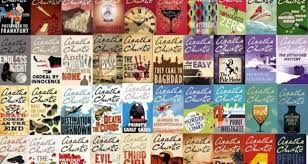
ME- How do you both end the mystery and let the others know of the solution?
POIROT- I usually reveal my description of the sequence of events and also my deductions to a room of suspects, which often leads to the culprit's apprehension.
MARPLE- I don’t gather all the suspects in a room just so I can see the culprit squirm but I just tell what I have found out.
ME- Well, what will be your advice to the young generation obsessed with crime fiction?
POIROT- Use your little grey ce-
(a waiter comes to the table) WAITER- Sir, a body has been discovered on the beach floating in from the sea. We desperately need your help Sir, Ma’am.
POIROT- (eyes shone in excitement) Yes, hold on. (turns to me) So as I was saying, use your little grey cells always and have order and method in everything you do.
MARPLE- (still knitting) Don’t forget to study human behavior and have fun gossiping. Also, keep your gardens clean, with all types of flowers. (looks at the sweater she was knitting)
POIROT- Come on, Mademoiselle Marple, let’s solve this, a murder case in India.
Even though I would have loved to have stayed there and witnessed the solving of a crime, the time restrictions imposed on using the machine forced me to return. As Hercule Poirot and Miss Jane Marple solve the case together even when they are on a holiday, I could not help but fathom the excitement and the feeling of intoxication I feel every single time I interview someone, especially when they are the two most famous and favorite detectives of the world.
